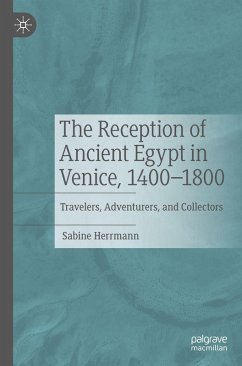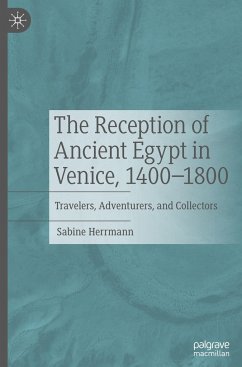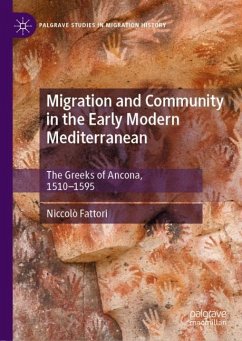
Florence's Embassy to the Sultan of Egypt
An English Translation of Felice Brancacci's Diary

PAYBACK Punkte
25 °P sammeln!
This book is the first English translation of Felice di Michele Brancacci's diary of his 1422 mission to the court of Sultan Al-Ashraf Seyf-ad-Din Barsbay of Egypt. Following the purchase of Port of Pisa in 1421, and the building of a galley system, Florence went on to assume a more active role in Levant trade, and this rich text recounts the maiden voyage of the Florentine galleys to Egypt. The text portrays the transnational experiences of Brancacci including those between the East and West, Christians and Muslims, and the ancient and modern worlds. The accompanying critical introduction dis...
This book is the first English translation of Felice di Michele Brancacci's diary of his 1422 mission to the court of Sultan Al-Ashraf Seyf-ad-Din Barsbay of Egypt. Following the purchase of Port of Pisa in 1421, and the building of a galley system, Florence went on to assume a more active role in Levant trade, and this rich text recounts the maiden voyage of the Florentine galleys to Egypt. The text portrays the transnational experiences of Brancacci including those between the East and West, Christians and Muslims, and the ancient and modern worlds. The accompanying critical introduction discusses the unexpected motifs in Brancacci's voyage, as well as tracing the aftershocks of what was a traumatic Egyptian experience for him. It shows that this aftershock was then measured, captured, and memorialized in the iconic image of Tribute Money, the fresco he commissioned from Masaccio, on his return to his own world in Florence.














